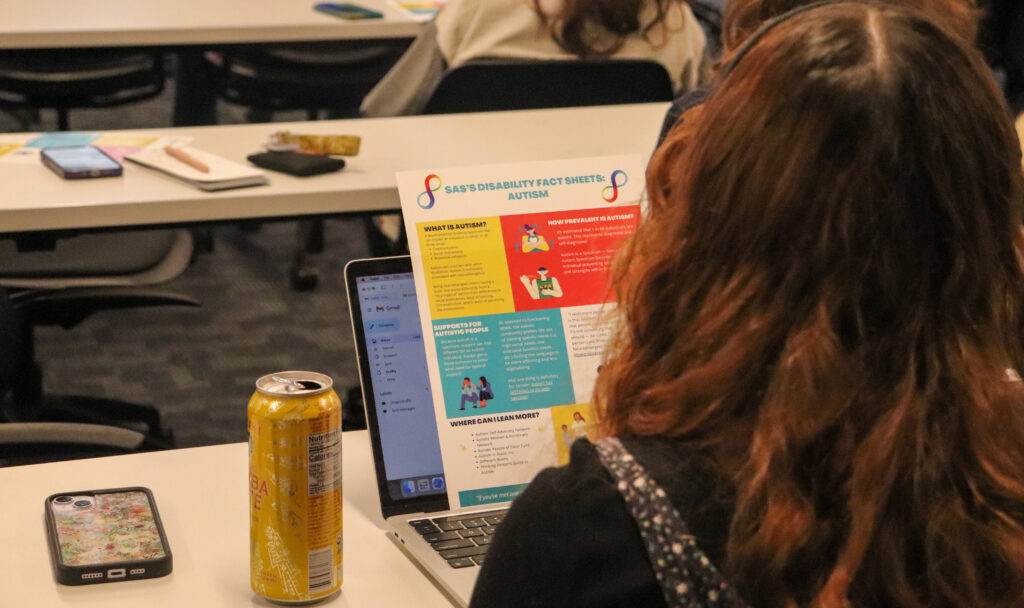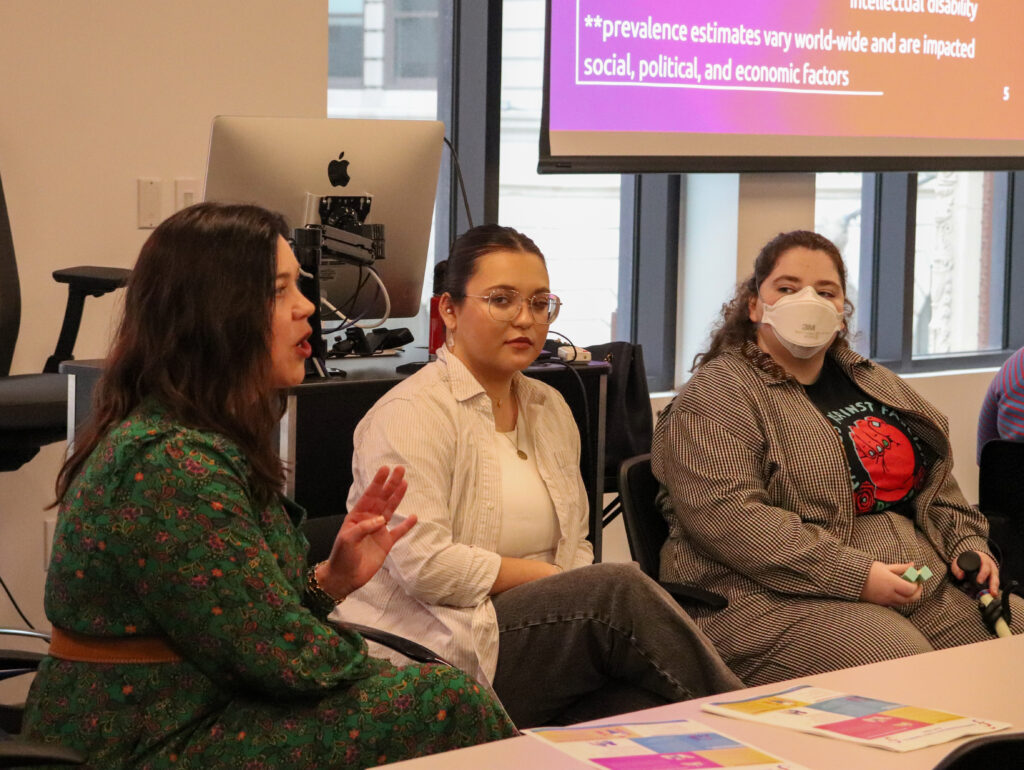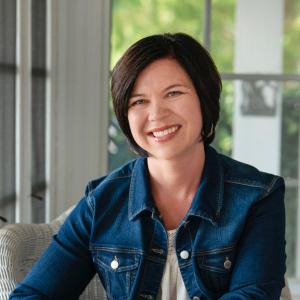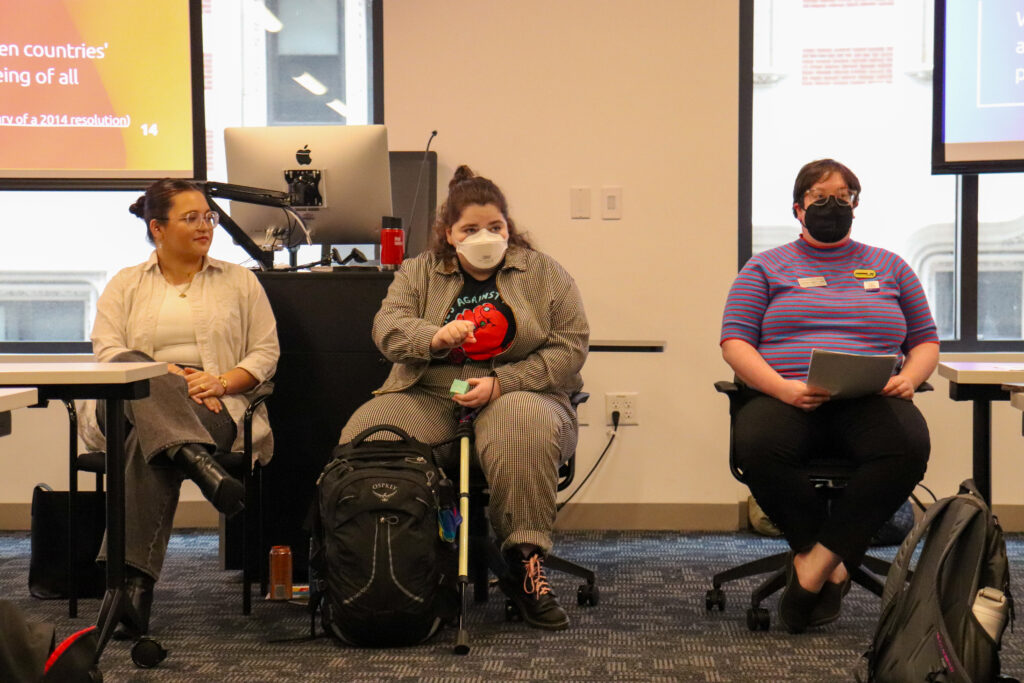Teach-In Panel Connects Disability Advocacy to Worldwide Sustainability Goals

When Melina List, co-president of Access: Student Disability Union shared that disabled individuals are still not protected by marriage equality in the U.S., audience members’ jaws dropped.
“It’s just striking to me the difference between where people who are ‘uninitiated’ think we are versus the lived experience,” List said during a panel discussion on Wednesday, March 6. “They are radically, radically different.”
In a way, the larger purpose of the panel on autism and inclusion—conducted as part of the Teach-In on Sustainability, through its lens of United Nations’ Sustainable Development Goals—was to familiarize the “uninitiated” with the systemic inequities faced by people with disabilities.

Photograph by Isa Luzarraga
Other panelists accompanying List were Jordy Lome, assistant director of accessible engagement at Student Accessibility Services, and Karli Wallace, vice president of advocacy for Access. Dr. Lisa Wisman Weil, senior scholar-in-residence and assistant dean for the Department of Communication Sciences and Disorders, moderated the panel.
The panelists recognized that the connection between disability advocacy and a worldwide framework for sustainability may be unclear for some. However, as Wisman Weil pointed out, four of the UN’s sustainability goals highlight ways to improve the lives of people with disabilities.

“I was really grateful to see that the UN sustainability goals talk also about inclusion as a concept in building healthy, sustainable communities — not just in an educational setting, but in a workplace economy,” Wisman Weil said.
“There’s this holistic idea that because disabled people now have the ADA [Americans with Disabilities Act], we have this rights framework,” Wallace said. “[People think] that for whatever reason, disability justice is this new kind of thing. There’s this holistic misconception that asking for equity is this new movement.”
Lome added that policy changes advancing disability rights are sometimes not enough to change the real motivation behind policy: values.

“We are structured to think that if we need something, or that if something is unwell with us, that something is wrong,” Lome said. “We’re all living an interdependent life. We all deserve care and support. Disability is normal and natural.”
Access has made strides in changing both values and policies. Wallace and List recounted the months-long research and meeting process preceding the institution of a “push button” for wheelchair users by the front door of the Walker Building on Boylston Street. The panelists also pointed out that the Little Building classroom they were sitting in was an accessible classroom, a recent product of List and Access’s advocacy.
“I think of Emerson as the sandbox where, if it works here, it can take on a larger scale,” Wisman Weil said. “Students who work here at Emerson might feel like [advocacy is] having a small impact. I personally think it’s a big impact because I see changes in accommodation letters. I see changes in classroom spaces. That’s part of what the advocacy work does is improve spaces for everybody.”
How are you engaging? How are you questioning yourself? What’s happening — what you’re seeing — might be news to you. And that’s OK, because we’re all at different points in the journey when it comes to disability. No one is an expert.
—Jordy Lome, assistant director of accessible engagement at Student Accessibility Services
While List and Wallace also noted accessibility shortcomings, the panelists remained optimistic about the future of both disability advocacy and sustainability, within Emerson and beyond. They identified individual and holistic learning as valuable tools for promoting change.
“How are you engaging? How are you questioning yourself?” Lome said. “What’s happening — what you’re seeing — might be news to you. And that’s OK, because we’re all at different points in the journey when it comes to disability. No one is an expert.”
Categories
Isabella Luzarraga View All
Isa is a senior journalism major minoring in media studies. She is from Omaha, Nebraska but loves coming back to the city. Outside of coursework, Isa is the Managing Editor of Your Magazine, the secretary of Emerson's chapter of NAHJ and a freelance writer for publications nationwide. She loves reading in the Common, going for long runs and sipping iced coffee.